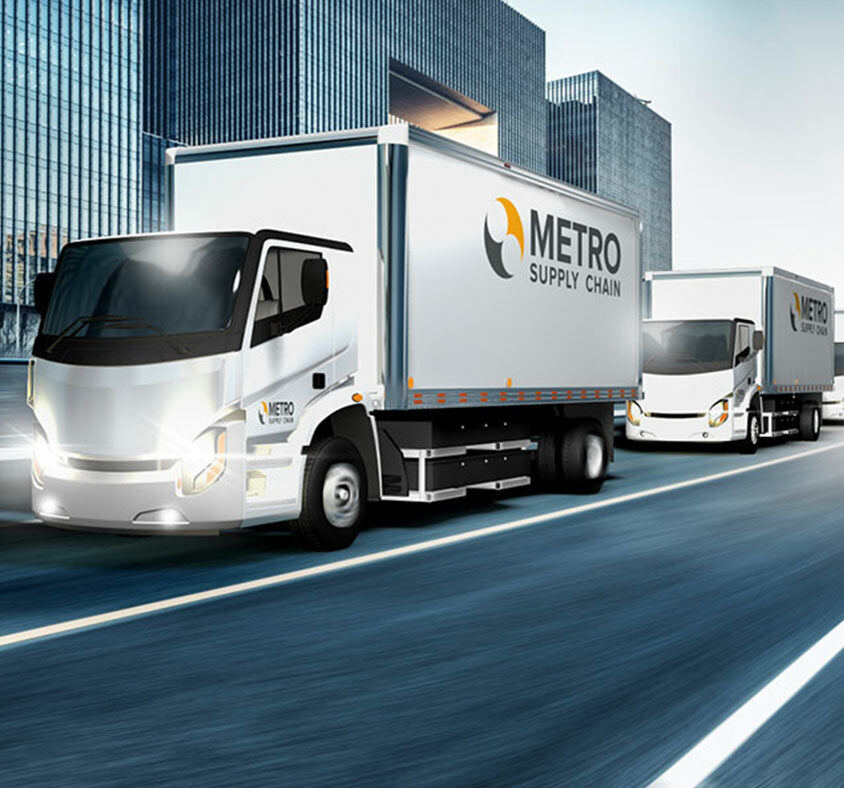It may seem like we have a long way to go before 2050 when Canada has stated it will cut its carbon emissions to net-zero, but it will be here before we know it. The complexity of transitioning to a fully green economy is considerable – especially for the transportation sector, which is one of the planet’s largest carbon emitters. We must start slashing greenhouse gasses now before it’s too late.
In our recent white paper, Driving fleet electrification forward, we outline the logistics sector certainly has a lot to do: A 2019 study by CDP, a non-profit organization that runs a global disclosure system to help investors, companies and governments manage their environmental impacts, found that supply chain emissions are 5.5 times higher than companies’ direct emissions. In Canada, specifically, transportation accounts for at least 25% of the country’s overall greenhouse gas emissions, with freight sources representing almost half (42%) of the total transportation emissions. That share is growing – especially with the surge in ecommerce increasing demand for last-mile and long-haul trucking. Globally, ecommerce is expected to reach $7.3 trillion by 2025, up from $4.9 trillion in 2021, according to eMarketer, which means a continued uptick in trucks on the road. It’s no wonder that freight emissions are expected to surpass passenger vehicle emissions in Canada by 2030.
The only way companies can satisfy the growing demand for their services and curtail greenhouse gas emissions is to employ electric vehicles (EVs). Unfortunately, EV adoption, generally, has been slow as just 4.6% of all vehicles in the country are EVs. Several factors have also weighed against the decarbonization of the transportation industry in Canada. Firstly, there is no formalized national zero-emission vehicle policy for goods movement either in the heavy-duty freight sector or for last-mile deliveries. Secondly, the only rebates available to purchasers of medium- and heavy-duty electric trucks are at the provincial level (in Quebec and British Columbia).
At the same time, the number of commercially available electric trucks – across all segments – is small and they come with hefty upfront costs, while battery technology isn’t there yet to deliver the range that long-haul freight companies need.
Fortunately, things are looking up. The most recent federal election saw strong support across the board for transportation electrification, while the government wants all medium- and heavy-duty trucks, where feasible, to be zero-emission by 2040. The government also said it will invest $200 million in a program to retrofit large trucks already on the road. If they follow through on all these plans, Canada will rival California for the most ambitious timeline for commercial vehicle transition.
Building out our EV capabilities
While Metro Supply Chain could wait to see if more financial incentives are offered or if new government initiatives make EV adoption easier, we’ve opted to forge ahead. In October 2019, we became an early EV adopter via an acquisition of a last-mile delivery company, which, at the time, was one of only two logistics operations that had class 5 electric vehicles. In early 2021, we purchased six heavy-duty class 6 electric vehicles, and we are looking to purchase more by end of 2022. We also built two charging stations at warehouses in Vancouver and Montreal. Our investments in EV infrastructure and vehicles will only increase from here.
Part of the reason why we’re taking steps now is because it’s the right thing to do – and we don’t want to have to one day make up for the lost time. But it’s also something our customers and their customers want. In December 2021, we announced a partnership with IKEA to provide zero-emission home delivery in Vancouver and Montreal. IKEA, which has made sustainability a core focus of its company, is working with supply chain and logistics operators like ours that are committed to reducing emissions through fleet electrification.
Everyone should start their transition to EV. It’s not just good for the environment, but it’s good for business, too. Customers are willing to pay a premium for zero-emission freight transport and distribution. And at the very least, they’re looking to spend their money with companies that have EV capabilities, which means that those who don’t start this process now will soon get left behind.
Of course, deciding to move in this direction has its risks, but it is the right choice. As adoption increases industry-wide, infrastructure expands and technology advances, the costs of zero-emission transport will only decrease. With continued (and in some cases expanded) government support and growing demand from customers, it’s not a matter of whether we’ll get to carbon zero, but how soon we can get there.
Read our new white paper to find out more about what we’re doing in this space and how other fleet operators can electrify.
About Metro Supply Chain
Metro Supply Chain is a strategic supply chain solutions partner for some of the world’s fastest growing and most recognizable organizations. Managing more than 19 million square feet in over 175 sites across North America and Europe with a team of 9,000, it is the largest privately-owned supply chain solutions company based in Canada. For 50 years, Metro Supply Chain’s scale, wide capabilities and entrepreneurial structure have enabled it to meet its customers’ most challenging supply chain needs, including the creation of complex ecommerce fulfillment and last-mile delivery networks.
Related Posts
Meet the soaring demand for vitamins and supplements with fast, compliant fulfillment
How to optimize your big and bulky last-mile delivery service
How the right change management program is key to transformation
Archived Posts
- september 2024
- january 2024
- february 2024
- march 2024
- may 2024
